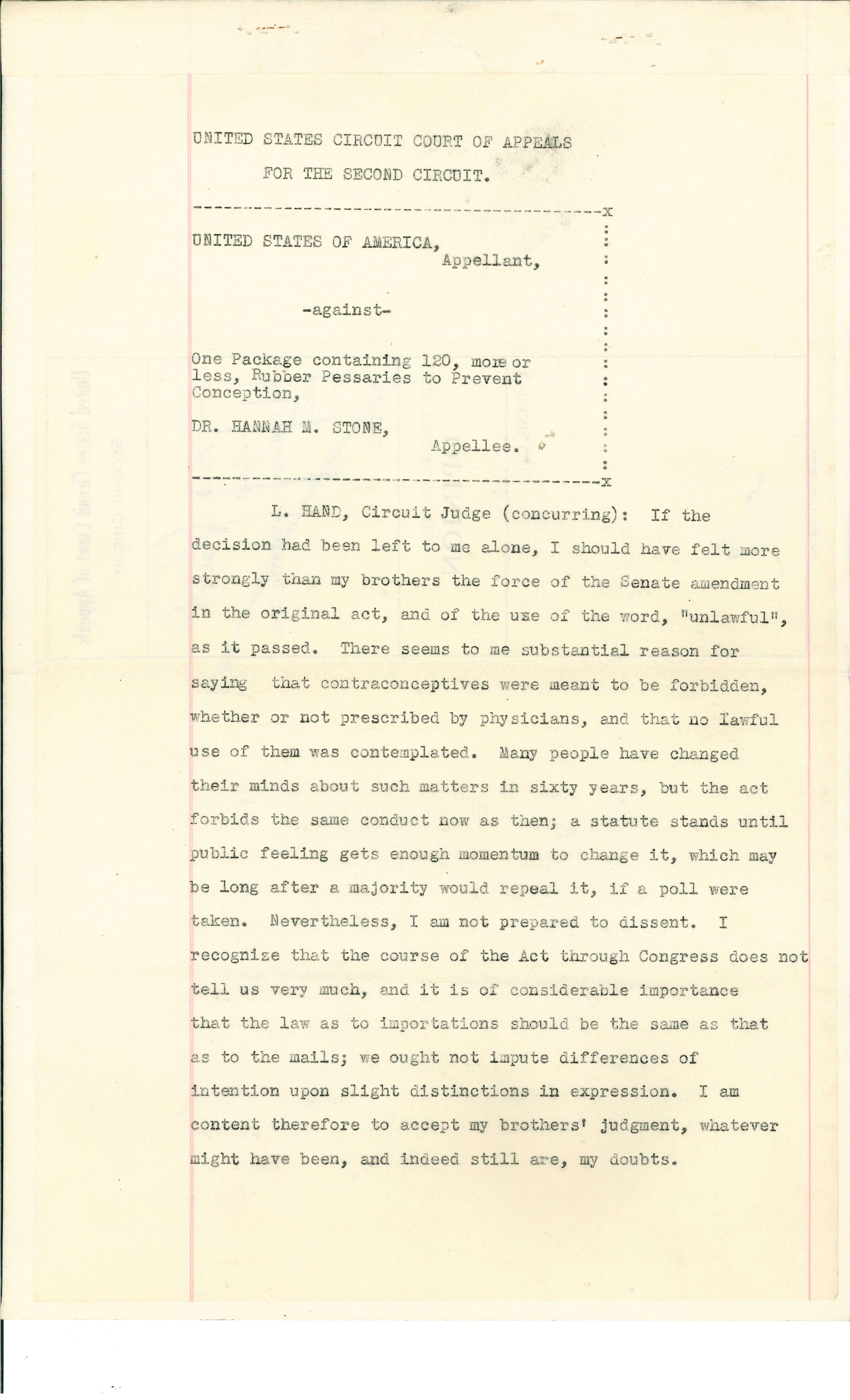Concurring Opinion of Judge Learned Hand in United States v. One Package
12/7/1936
Add to Favorites:
Add all page(s) of this document to activity:

The 1873 Comstock Act made it a Federal offense to send contraceptive devices or information about birth control in the mail. The Tariff Act of 1930 similarly gave the U.S. Government authority to seize contraceptives imported into the country. This 1936 opinion comes from the case United States v. One Package of Japanese Pessaries (United States v. One Package), in which Dr. Hannah Stone received a pessary to prevent conception, a new type of diaphragm, from Japan, that was seized.
The court ruled that contraceptives were not banned under the Tariff Act if imported by a doctor. In his concurring opinion, Judge Learned Hand acknowledged that "Many people have changed their minds about such matters [contraception] in sixty years, but the act forbids the same conduct now as then; a statute stands until public feeling gets momentum enough to change it." In 1965, the Supreme Court ruled in Griswold v. Connecticut that laws banning contraceptive use violated the right to marital privacy.
The court ruled that contraceptives were not banned under the Tariff Act if imported by a doctor. In his concurring opinion, Judge Learned Hand acknowledged that "Many people have changed their minds about such matters [contraception] in sixty years, but the act forbids the same conduct now as then; a statute stands until public feeling gets momentum enough to change it." In 1965, the Supreme Court ruled in Griswold v. Connecticut that laws banning contraceptive use violated the right to marital privacy.
This primary source comes from the Records of the U.S. Courts of Appeals.
Full Citation: Concurring Opinion of Judge Learned Hand in United States v. One Package; 12/7/1936; Appeal Docket #14782; United States v. One Package; Case Files, Briefs and Appendices, 1891 - 1993; Records of the U.S. Courts of Appeals, Record Group 276; National Archives at New York, New York, NY. [Online Version, https://docsteach.org/documents/document/opinion-hannah-stone, April 20, 2024]Rights: Public Domain, Free of Known Copyright Restrictions. Learn more on our privacy and legal page.



